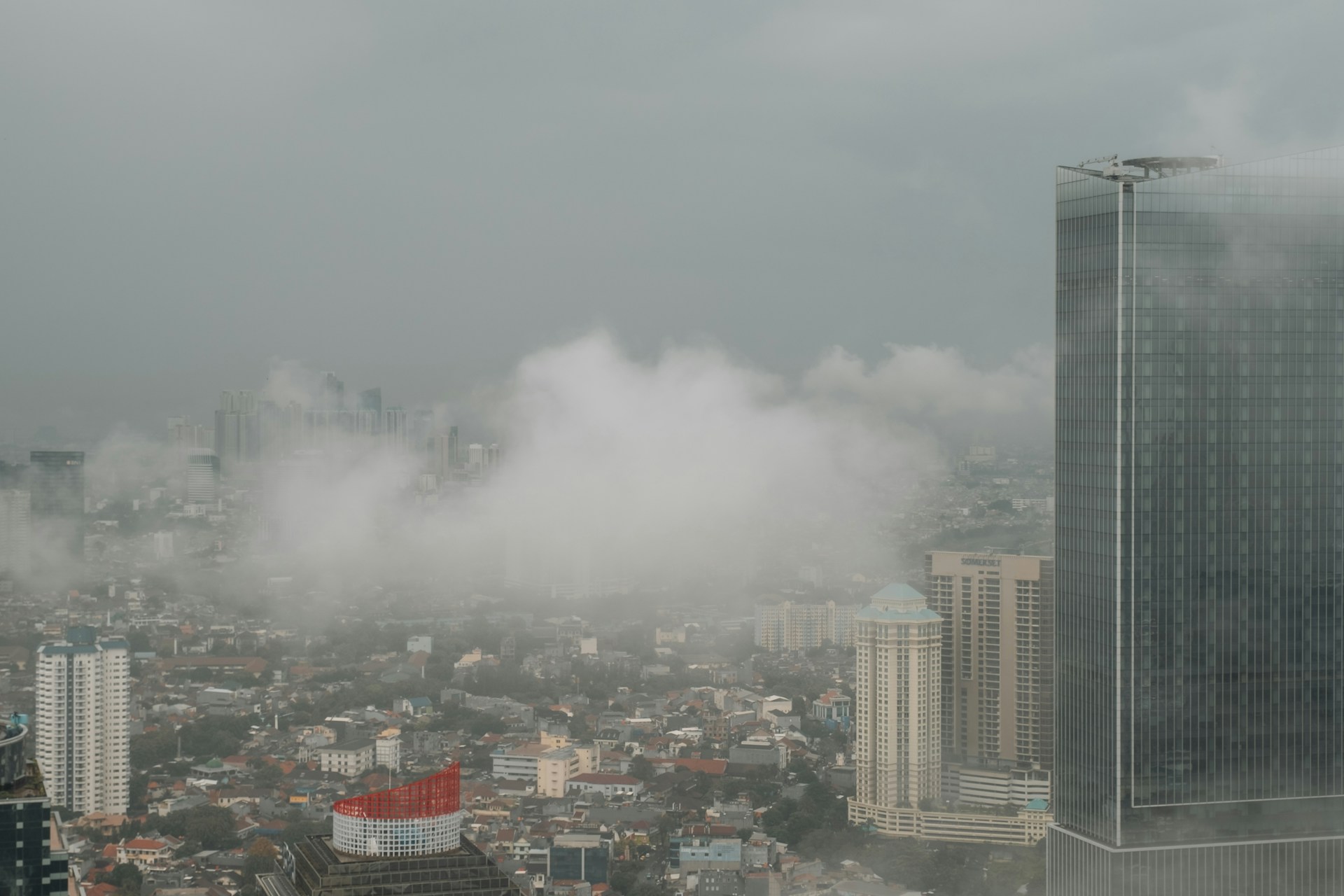PT Telkom Indonesia (Persero) Tbk has partnered with Telkom University to launch an Indoor Air Quality Monitoring System (IAQMS) at Telkom Landmark Tower, Jakarta (17/9).
This collaboration marks a significant step in Telkom’s role as a digital company, utilizing advanced sensors to monitor indoor air quality in real-time.
Real-Time Air Monitoring at Workplaces
The system tracks multiple parameters including PM2.5, CO₂ levels, temperature, and humidity.
Data is displayed through a web-based dashboard that provides automated recommendations on air circulation, ventilation, and energy management.
“This is a strategic move to protect employees amid the challenges of urban air quality,” said Hery Susanto, Senior General Manager Social Responsibility at Telkom.
“As a digital company, Telkom has a responsibility to create a healthy and sustainable work environment that supports productivity.”
Jakarta’s Air Pollution Ranked Worst in July 2025
IQAir’s July 2025 report ranked Jakarta as the most polluted city globally. The pollution is caused by industrial emissions, motor vehicles, and human activities such as burning waste.
The Ministry of Environment and Forestry (KLHK) and Environmental Control Agency (BPLH) reported that air quality in Jabodetabek had reached the "Unhealthy" to "Very Unhealthy" categories. The rise in PM2.5 levels began during the 2025 dry season.
The worsening air conditions highlight the need for collective action across sectors.
IAQMS Delivers Strong ROI and Health Efficiency
The IAQMS initiative also brings operational benefits. Based on analysis, the system provides a 235.8% return on investment (ROI), with each Rp1 invested returning Rp3.36 in value.
The program will be tested over three months with full warranty and ongoing monitoring.
Telkom plans to extend the system to other strategic locations such as Menara Multimedia and the Digital Multi-purpose Building (GSD).
Aligned with Telkom’s Environmental Responsibility Goals
This program is part of Telkom’s Social and Environmental Responsibility (TJSL) initiative.
It supports several Sustainable Development Goals (SDGs), including SDG 3 (Health and Well-being), SDG 9 (Industry, Innovation, and Infrastructure), SDG 11 (Sustainable Cities and Communities), and SDG 13 (Climate Action).
Through IAQMS, Telkom aims to maintain air quality and employee health, while contributing to a healthy, productive, and sustainable work environment.
PHOTO: UNSPLASH
This article was created with AI assistance.
Read More






 Friday, 06-02-26
Friday, 06-02-26







